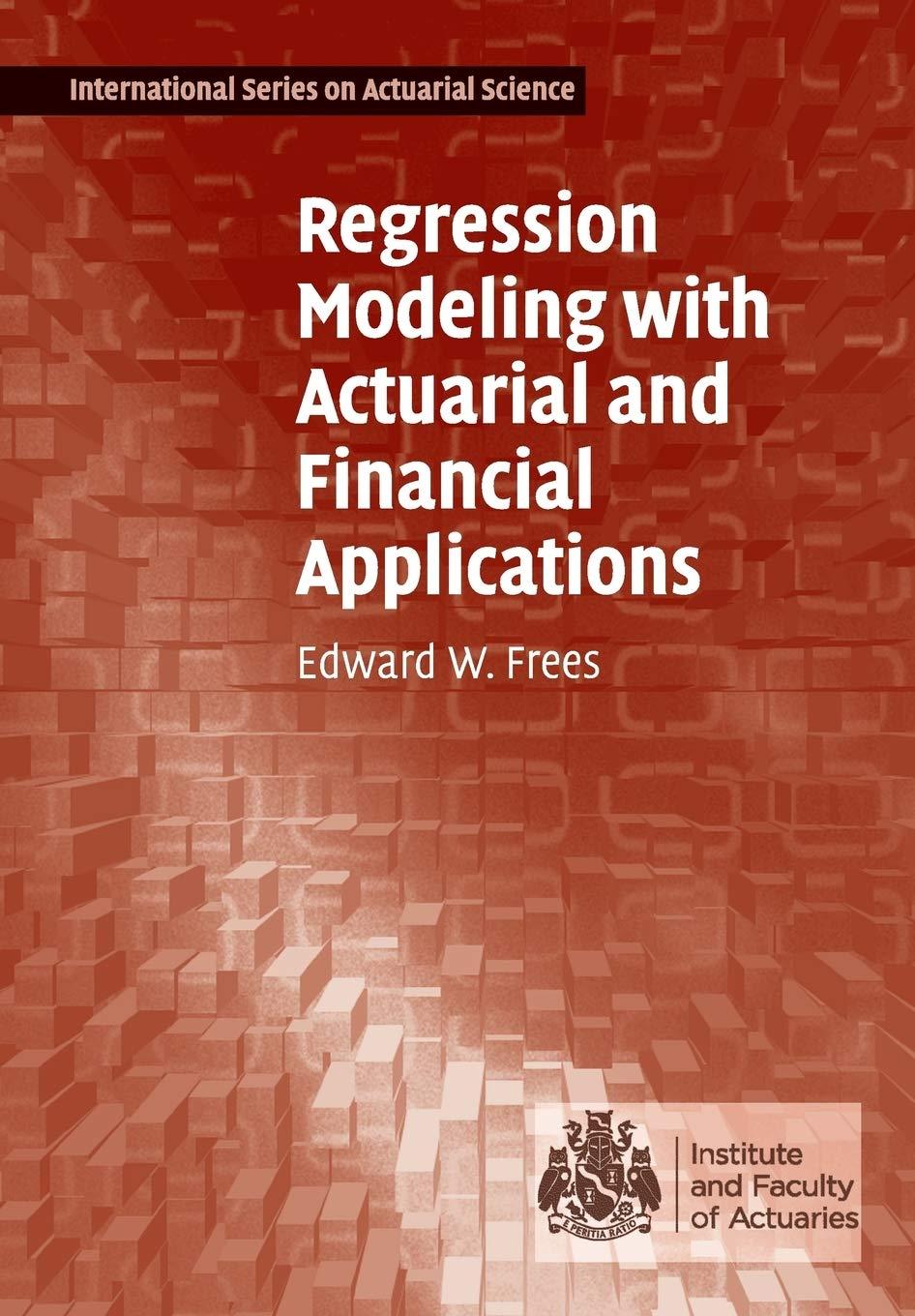Consider the model (y_{i}=beta_{1} x_{i}+varepsilon_{i}), that is, regression with one explanatory variable without the intercept term. This
Question:
Consider the model \(y_{i}=\beta_{1} x_{i}+\varepsilon_{i}\), that is, regression with one explanatory variable without the intercept term. This model is called regression through the origin because the true regression line \(\mathrm{E} y=\beta_{1} x\) passes through the origin (the point \((0,0)\) ). For this model,
the least squares estimate of \(\beta_{1}\) is that number \(b_{1}\) that minimizes the sum of squares \(\operatorname{SS}\left(b_{1}^{*}\right)=\sum_{i=1}^{n}\left(y_{i}-b_{1}^{*} x_{i}\right)^{2}\).
a. Verify that \[b_{1}=\frac{\sum_{i=1}^{n} x_{i} y_{i}}{\sum_{i=1}^{n} x_{i}^{2}}\]
b. Consider the model \(y_{i}=\beta_{1} z_{i}^{2}+\varepsilon_{i}\), a quadratic model passing through the origin. Use the result from part (a) to determine the least squares estimate of \(\beta_{1}\).
Step by Step Answer:

Regression Modeling With Actuarial And Financial Applications
ISBN: 9780521135962
1st Edition
Authors: Edward W. Frees





